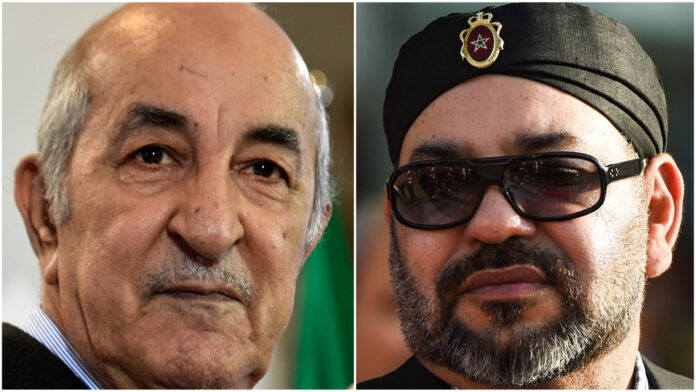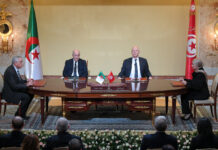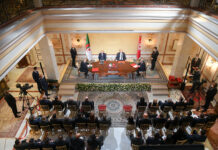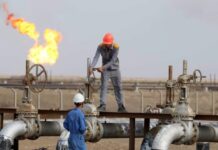The results of the severing of Algerian-Moroccan diplomatic relations began to be reflected in the relationship of the two countries and their commitments towards Europe, after Algeria decided to dispense with the supply of gas to Spain through pipelines that cross Moroccan territory.
In this context, the Algerian Minister of Energy and Mines, Mohamed Arkab, confirmed that all Algerian natural gas supplies to Spain will be carried out through the “Medgaz” pipeline, which passes directly from the coastal town of Beni Saf in western Algeria to Almeria in southern Spain, and was inaugurated in 2011, with a capacity of Transport estimated at 8 billion cubic meters annually.
During his reception, at the headquarters of his ministry, the Ambassador of Spain to Algeria, Fernando Moran Calvo Sotelo, Mr. Arkab affirmed “Algeria’s full commitment to covering all natural gas supplies to Spain through “Medgaz“, noting that “Algeria’s available capabilities to meet the increasing demand for gas from the markets. The European market and especially the Spanish market, thanks to the flexibility in terms of the monetization capabilities available to the country.”
According to local media, the Algerian authorities decided to abandon the company responsible for linking Spain and Portugal with Algerian gas through Morocco, which pumps at an average of 9,000 million cubic meters annually, since October 1994, by not renewing the contract that ends next October.
Commenting on the decision, the Director-General of the Moroccan Office of Hydrocarbons and Minerals, Amina Benkhadra, confirmed in a statement to the Maroc-Le Jour website that Morocco supports the continuation of the work of the pipeline that transports gas from Algeria to Spain via Morocco.
She added that Morocco expressed its position on the issue of continuing to work on the gas pipeline in private talks and in public statements, stressing that it represents a tool for regional cooperation.
Statistics related to this pipeline, according to an investigation published by the Algerian newspaper Al-Shorouk, indicate that Morocco annually receives significant revenues from the transit of Algerian gas through its territory.
In 2018, Morocco’s revenues amounted to about 170 million dollars, before declining in 2019 to 113 million dollars, and then to 56 million dollars in 2020.
Morocco obtains these revenues in the form of natural gas estimated at 600 million cubic meters per year, which is directed to the production of electricity from two power plants, so it will be affected by the non-renewal of the company’s contract.
For its part, Algeria will lose the ability to pump about 6000 million cubic meters of gas annually to Europe, which could cause serious damage to its weak economy, which is completely dependent on fossil fuels as oil and gas represent 95% of its annual exports.











